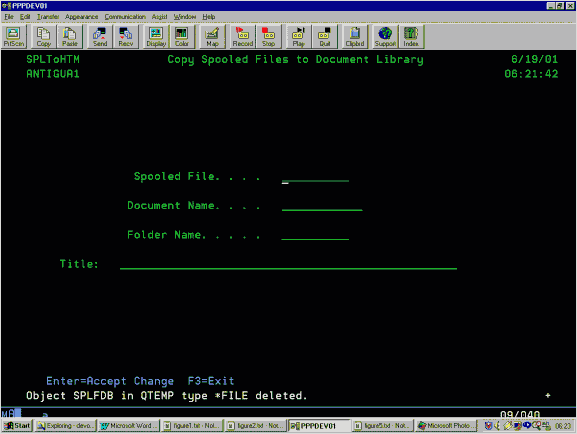
Error Setting Java_home Variable For P6 Suite Installer
Jun 28, 2011 - In this example we will set the JAVA_HOME variable in Windows. The JAVA_HOME variable is used by applications to find the Java. After you’ve installed the Java Environment Kit (JDK) in Windows, you must set the JAVA_HOME environment variable to point to the JDK installation directory. Step 1: Setting the JAVA_HOME Variable 1) Open the Control Panel -> System or Security –> System; the same thing can be done by right-clicking on ‘ MyComputer’ and choosing. Wago io check 2 software download.
I always wondered why I have to manually set the JAVA_HOME environment variable after installing the Java SDK. JAVA_HOME=c: Program Files Java jdk1.6.0_12 Visual Studio at least provides a batch file to set these kind of environment variables: call 'c: Program Files Microsoft Visual Studio 9.0 VC vcvarsall.bat' Does Java have something similar? I'm trying to make a build script that should simply work after installing the Java SDK. I don't want people to mess with environment variables on their PC. You can install as many versions of Java as you like.
It would be dangerous for the setup to modify a local environment variable such as JAVA_HOME, since it might reference an existing Java installation. This has nothing to do with an alleged 'platform dependent issue'.;) Since scripts might depend on JAVA_HOME to launch themselves, again, this would be disasterous for a new Java install to modify JAVA_HOME: all those scripts would suddenly have to be launched with a new potentially incompatible JVM. Plus, by setting $JAVA_HOME/bin or%JAVA_HOME%/bin in your path, you can dynamically change JAVA_HOME to whatever version of Java you want to use without having to much with your PATH variable. Has made in the comments the interesting followup's question Still, this does not explain why the installer does not set JAVA_HOME when it is not previously set at all. The answer is simple: The setup cannot know if a script already depends on JAVA_HOME or not. Meaning: some scripts could test for JAVA_HOME value, and if not set, refer to another JVM installed elsewhere (and do not forget that by 'install', one can only refer to 'copied': a JDK/JRE is not always installed by a setup) If you set JAVA_HOME, that can disrupt the default behavior of some of your scripts. Not wanting to disturb hypothetical scripts that depend on a env var not being set sound pointlessly paranoid to me - If a script does that, then it clearly WANTS to use a different JVM when one is installed - no reason to avoid that.
For dealing with massive deployment issues on a daily-basis (for internal application in my shop), I can assure you: it is very sane 'paranoid' treat to have. When you deploy to a (very) large set of users, you do not want to make any assumption about their platform and configurations. 'clearly WANTS' is an assumption I would not dare to make (or I redirect my phone to yours;) and you handle the angry calls). For instance, we have many scripts which launches with a 1.4.2 JVM from sun (JAVA_HOME not set on development platform, default path set directly in the script), or with 1.4.2 from JRockit ( JAVA_HOME set, as it is the intended target on integration, pre-production and production platforms).
But we install regularly the new JDK1.6.x since we use it for launching eclipse. Assume that those scripts want their JAVA_HOME set. And nothing works anymore. To which makes this on-the-spot critic: You're describing scripts that require one specific version, but still look at global JAVA_HOME. That's just badly thought out scripts.
Motion sensor games for nokia asha 311 free download. While that may or may not be true, that also illustrates precisely my point: 'you do not want to make any assumption': no assumption on their platform/settings, and no assumption on their 'best practices'. The former may sound paranoid, the latter is plain common-sense: thinking that your product (here a JDK setup) will not break anything on the user's environment because the user has 'correctly' thought out his scripts.
Would be insane. Suggests: Or it could just have option to do it, disabled by default That would mean another option to include in the setup screens, option which should be carefully reviewed by the user, and which may have unintended consequences, even when the user selects it thinking he knows what he is doing. It is simply not worth it. The vcvarsall.bat mechanism is a convenient way for Visual C++ to provide a console with the correct variables without messing with the user's/system's environment variables.
However, it assumes that Installshield is the only way to get code onto the system. The JDK should tolerate being cut'n'pasted from one location to another.
If you're looking for java.exe, the Installshield installer should put it in%windir% system32, so it is available on the PATH. You can gain some hints about the location of installed apps by querying the registry: C:>REG QUERY 'HKEY_LOCAL_MACHINE SOFTWARE JavaSoft Java Development Kit 1.6' /v JavaHome!